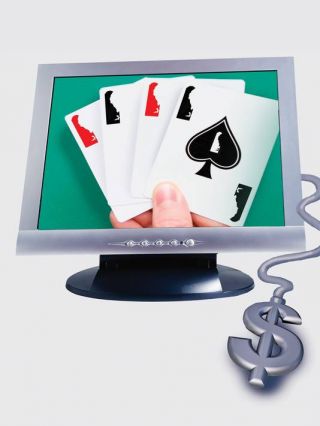Compulsive Behaviors
Nothing Ventured, Nothing Gained?
A brief look at the effect of playing online money-free gambling games
Posted March 4, 2013
Bill Gates arrives at the port to heaven and hell. Petrus says “You see Bill, we don't know what to do with you. You may choose heaven or hell". Bill peeks in heaven and sees a couple of old boring men sitting around at a table. Bill takes a look in hell and sees really beautiful women, sex, drugs, rock and roll, and most of all, gambling. Bill says “I am a gambling man, I want to go to hell!” Once in hell, Bill is immediately thrown into the fire. Bill says “Hey, what the hell is this, I saw all the gambling, women, and sex?” The devil says 'That was just a demo version."

Hopefully this opening joke highlights that one of the most common ways that gamblers can be facilitated to gamble online is when they try out games in the ‘demo’, ‘practice’ or ‘free play’ mode. At one level, most would argue that playing for points rather than money is little more than innocuous fun and ‘good value’ to the player. Furthermore, playing games for free online is akin to ‘skill schools’ that exist offline, such as learning poker or blackjack in a casino.
Offline, there are many constraints to ‘learning to play’ as the free opportunities may only be available on certain days and at certain times. On internet gambling sites there is a lot of scope for players to practice games for free before they play with real money. However, gaming operators need to realise that in terms of their social responsibility, games – even the ‘demo’ versions – need to be fair to players. Despite the undoubted positives, there are other not so positive aspects that have been identified in the scientific literature.
The use of ‘greater than chance’ win probabilities during ‘demo’ games is one example of the many tried and tested psychological ‘foot-in-the-door’ techniques used widely in the commercial sector. Some research carried out by psychologists at the University of Laval in Canada showed it was significantly more commonplace to win while ‘gambling’ on the first few goes on a ‘demo’ or ‘free play’ game. They also reported that it was commonplace for gamblers to have extended winning streaks during prolonged periods while playing the ‘demo’ version. Obviously, once gamblers to play for real, the odds of winning may be considerably reduced. Related to this are the urban myths that develop around online gambling. For instance, a very common myth is that a gambler’s first bet after opening an online account is very often a winning one.
There are now a growing number of studies highlighting that playing for free online is popular among teenagers. ‘Money free’ gambling appears to play an important role for adolescents in conceptualising and experiencing Internet gambling. In the 2009 British study of gambling among nearly 9000 adolescents aged 11-to 15-years, Ipsos MORI reported that just over a quarter of them had played in ‘money-free mode’ on internet sites in the week preceding the survey. Further analysis of these data by researchers at Salford University showed that gambling in the money-free mode was the single most important predictor of whether the child had gambled for money, and one of the most important predictors of children’s problem gambling. However, the possibility and extent to which money-free gambling is responsible for real gambling participation and gambling-related risk and harm needs further research.


